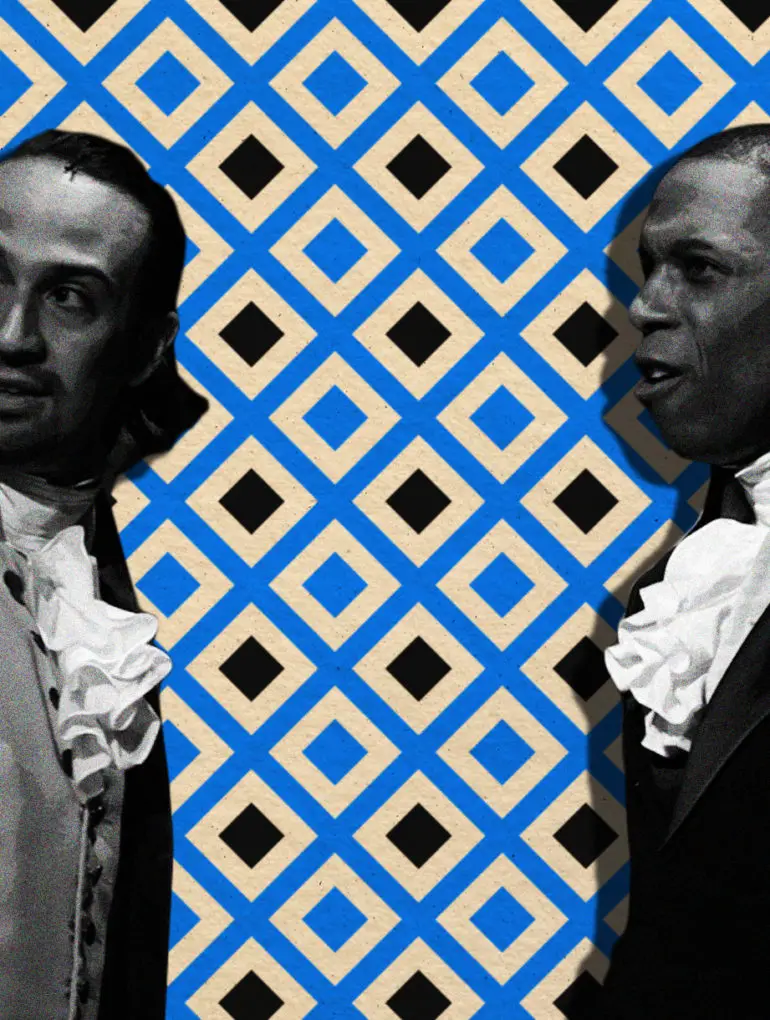Two major cultural happenings, at least not related to COVID-19 or the aftermath of the killing of George Floyd, have taken place in the first half of July 2020: Hamilton debuted on Disney+, and a massive culture-wide debate has been had over “cancel culture.”
So naturally, the two have intersected, with #CancelHamilton trending on Twitter last week, and a series of op-eds and news stories have speculated that “cancellation” for the popular musical is allegedly imminent.
Rest easy, Hamilton obsessives: The show isn’t going anywhere, and you’ll probably be able to watch it on Disney+ for as long as Disney+ exists.
Cancel Cancel Culture
First, a word about “cancel culture.” Among many ridiculous things about the concept is that the term cancel culture has been ill-defined to the point of being meaninglessness; encompassing everything from one becoming a permanent pariah, to being fired, to merely being criticized for a few days by co-workers or Twitter. R. Kelly can’t get a record deal anymore? That’s cancel culture. Someone noticed racist elements in a movie from 1985? Also cancel culture.
“Cancel culture” includes both those who do things that are obviously deserving of consequences and those that don’t, and claims free speech absolutism for some, but not others, especially those who are doing the criticizing of the first people. And would appear that the position taken by the vast majority of those engaged in this debate, of whatever political persuasion they are, is that people they like don’t deserve to be cancelled, and people they don’t like, do.
The term cancel culture has been ill-defined to the point of being meaninglessness
But of all the dumb ways cancel culture has manifested itself – and now that Donald Trump is talking about it, it’s gotten even dumber than before – two particular ones are the dumbest of all: When an immensely popular work of art is criticized by a handful of people, and when there’s no effort whatsoever underway to “cancel” that work, but plenty of speculation that maybe, somebody, there could be.
So naturally, cancel culture has “come” for Hamilton, in both of those uncommonly stupid ways. Yet it remains, blessedly, un-cancelled.
The Room Where it’s (Not) Cancelled
Here’s what happened: Hamilton debuted on Disney+ July 3. While there’s no official number out yet on how many people watched it in the first weekend and since, it’s likely that a historically massive audience did, and we know that it spurred Disney+ signups in a major way. The show’s huge fanbase posted lyrics, memes, and a hilarious, completely unauthorized soundtrack in which the Muppets sang the first half of the show (with Beaker as John Laurens!). The arrival of Hamilton, for the most part, involved fans of Hamilton rejoicing at being able to watch a show that many of them had spent years only experiencing through the cast album.
Twitter is Not Real Life
But on social media, along with all the joy, there were also some complaints. There were criticisms of the show’s historical accuracy, its overstating of Alexander Hamilton’s abolitionist credentials, and other aspects of the show that are considered problematic. There was also the left-wing critique of Hamilton fandom as an elite phenomenon, often centered on the Hillary Clinton campaign and DNC in 2016 all being superfans of the show.
Before long, #CancelHamilton was trending on Twitter.
Then came the media.
“Cancel ‘Hamilton’? Calls to drop the musical from Disney sweep the internet,” the title of a Fox News segment said.
“#CancelHamilton: Lin-Manuel Miranda’s hit musical under fire due to Alexander Hamilton’s slavery ties,” The National said.
“Cancel Culture targets Broadway hit ‘Hamilton,’ as racial politics grow more uncompromising,” screamed Just The News.
And in City Journal, Kay Hymowitz asked, “Is Hamilton Next?,” which goes in the familiar genre of pieces arguing that while the wokesters may not be calling for the show’s censorship now… they might someday (the right has been making this claim about Blazing Saddles, falsely, for at least a decade, and it’s yet to actually happen).
Then there was this, a cartoon drawn by someone familiar enough with Hamilton to know many of the lyrics, but not familiar enough to avoid the impression that musical doesn’t mention or reference slavery:
Who tells your story?
Here’s what actually happened: Millions of people watched Hamilton on Disney+. Hundreds of them criticized it, and probably dozens of them actually called for it to go away, an idea with absolutely zero chance of happening. The idea that Disney+ was going to remove its most popular movie ever, just a few months after paying a reported $70 million for its rights, is all but impossible.
All of those debates that were had about the accuracy and the problematic aspects of Hamilton are the same ones that historians, activists, and theater enthusiasts – and quite a few people who are more than one of the above – have been having since Hamilton first appeared on stage five years ago.
It’s the nature of Twitter that no matter how fringe or nutty an opinion, somebody on there probably has it. And it’s also part of the nature of that social network that the #CancelHamilton hashtag, like many controversial hashtags, was loaded with people arguing that #CancelHamilton is stupid and shouldn’t be trending. And furthermore, this controversy ignores the well-established concept of the “problematic fave.”
A lot of the people who have complaints about Hamilton‘s historical accuracy and treatment of slavery… are also people who love the show, have listened to the soundtrack hundreds of times, know the dense lyrics by heart, and therefore have to wrestle with the question of whether their misgivings outweigh their fandom. That’s a dynamic that happens very frequently these days – a lot more, in fact, than any kind of mass movement in favor of actual censorship.
It’s the nature of Twitter that no matter how fringe or nutty an opinion, somebody on there probably has it
This New York Times piece, about a group of historians who participated in a group watch of the Hamilton movie, makes clear that many of them were bothered by the show’s less-than-entirely accurate view of history – but it also makes clear that most of them are huge, longtime fans of Hamilton.
There are many things wrong with the way cancel culture is analyzed and litigated. One of the worst ones is the way that any good faith criticism is instantly waved away as an attempt at full-on censorship, when that’s almost never actually proposed. And when one does call to “cancel” something, it might as well be one of the other seven definitions, that doesn’t involve the removal of a piece of art from circulation or the immediate end to its creator’s career.




